More and more research is emerging regarding the link between diet and irritable bowel syndrome, or IBS. It has been proposed that diet can be more effective than medication and is often the first approach when treating IBS. This post discusses the latest research on the low FODMAP diet, Mediterranean diet, and a low carb, high fiber diet as treatments for IBS.
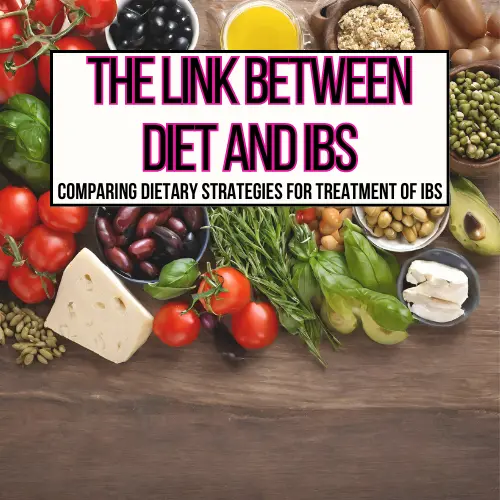
Research on the low FODMAP diet consistently shows it can improve IBS symptoms. However, the diet is complex and very restrictive.
When it comes to IBS, there is no “one size fits all” approach. What works for one person might not work for another – dietary changes should be individualized. Some might see improved symptoms by restricting all dairy products, while others may not.
There are still many unknowns, but the good news is that there actually is research on potentially reducing IBS symptoms with dietary changes! Let’s discuss.
Summary of What You’ll Learn in This Post
Below is a summary of what is covered in this post – and I will go more in-depth and discuss actual clinical trials regarding each diet.
What Causes IBS?
IBS is now considered very common, with an estimated 15% of Americans experiencing symptoms like abdominal pain, gas, bloating and changes in bowel movements.
The exact cause is unknown, but there seems to be a relationship between the digestive tract and the brain. Anxiety and depression are highly prevalent in those with IBS.
There are four different types, depending on bowel habits: IBS with constipation (IBS-C), IBS with diarrhea (IBS-D), IBS with constipation/diarrhea (IBS-M), and unclassified IBS (IBS-U).
Diets That Might Work for IBS Symptoms
The traditional IBS diet includes avoiding spicy foods, some dairy products, specific fruits and vegetables, artificial sweeteners and coffee.
Let’s go over some other options – the Mediterranean diet, low FODMAP, gluten-free diet, and a low carb, high fiber diet.
Low FODMAP Diet
The low FODMAP diet reigns supreme as the most effective diet to treat IBS – according to research.
A 2021 systematic review and meta-analysis reviewed 12 studies confirmed the low FODMAP diet reduces GI symptoms and improves quality of life for those with IBS. However, it’s very complex and restrictive- and the long-term effects are not yet known regarding nutritional deficiencies and the gut microbiome.
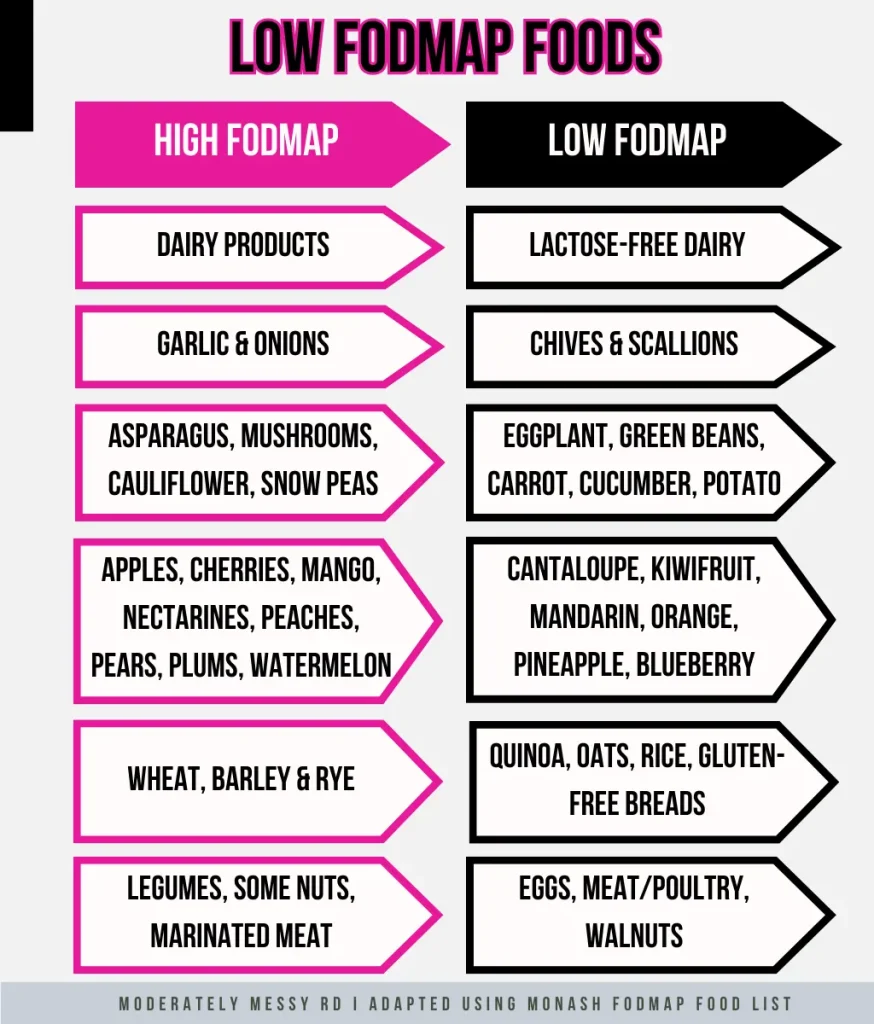
Monash University developed the concept of the low FODMAP diet. Their website and app have the most up-to-date information regarding the diet and what foods you can and cannot eat!
Those with depression or anxiety might feel overwhelmed and unable to follow diet recommendations. It’s important to understand that the purpose of this diet is to determine which foods are triggers for your IBS symptoms.
The elimination phase should only last 2-6 weeks, then food is gradually incorporated back into your diet.
For low FODMAP diet resources, read:
— Low FODMAP Snacks
— Low FODMAP Breakfast Ideas
Mediterranean Diet
Since IBS is characterized by bowel inflammation, it has been proposed that the Mediterranean Diet could be a potential treatment option due to its’ anti-inflammatory properties. This diet is primarily plant-based and rich in fruits, vegetables, nuts, beans, legumes, olive oil and fish.
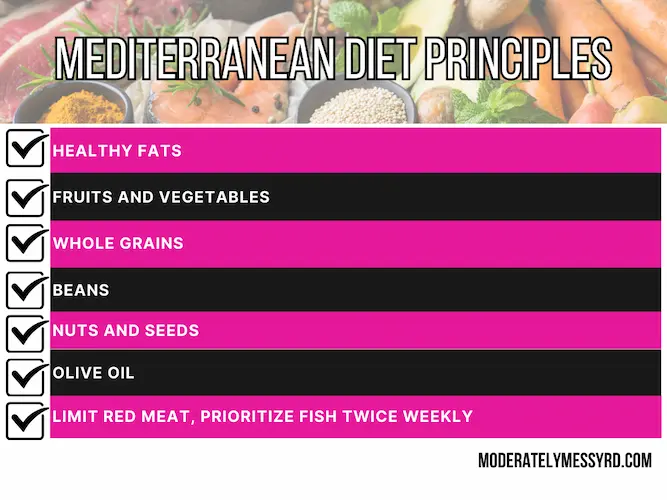
The diet limits the consumption of red meat, processed foods, and refined oils.
A 2024 clinical trial examined the effects of the Mediterranean diet on symptoms of IBS for a 6-week period. 29 individuals were counseled to follow a Mediterranean diet, with 30 in the control group.
They found that 83% of the Mediterranean diet group reported improvement in their GI symptoms, compared to 37% in the control group. Even further, 62% of those following the Mediterranean diet reported feeling less depressed.
It was concluded this study provided strong evidence for future trials given the diet’s anti-inflammatory properties and might even help with mental health symptoms often associated with IBS.
Low Carbohydrate, High Fiber Diet
A study published in April 2024 compared two different diets: a low FODMAP diet and a low carb, high fiber diet for treatment of IBS. 294 participants were asked to follow each diet for 4 weeks and encouraged to continue for follow-up in 6 months.
70% of the participants in each treatment group experienced a 50% reduction in IBS symptoms. Therefore, BOTH diets were effective in managing IBS.
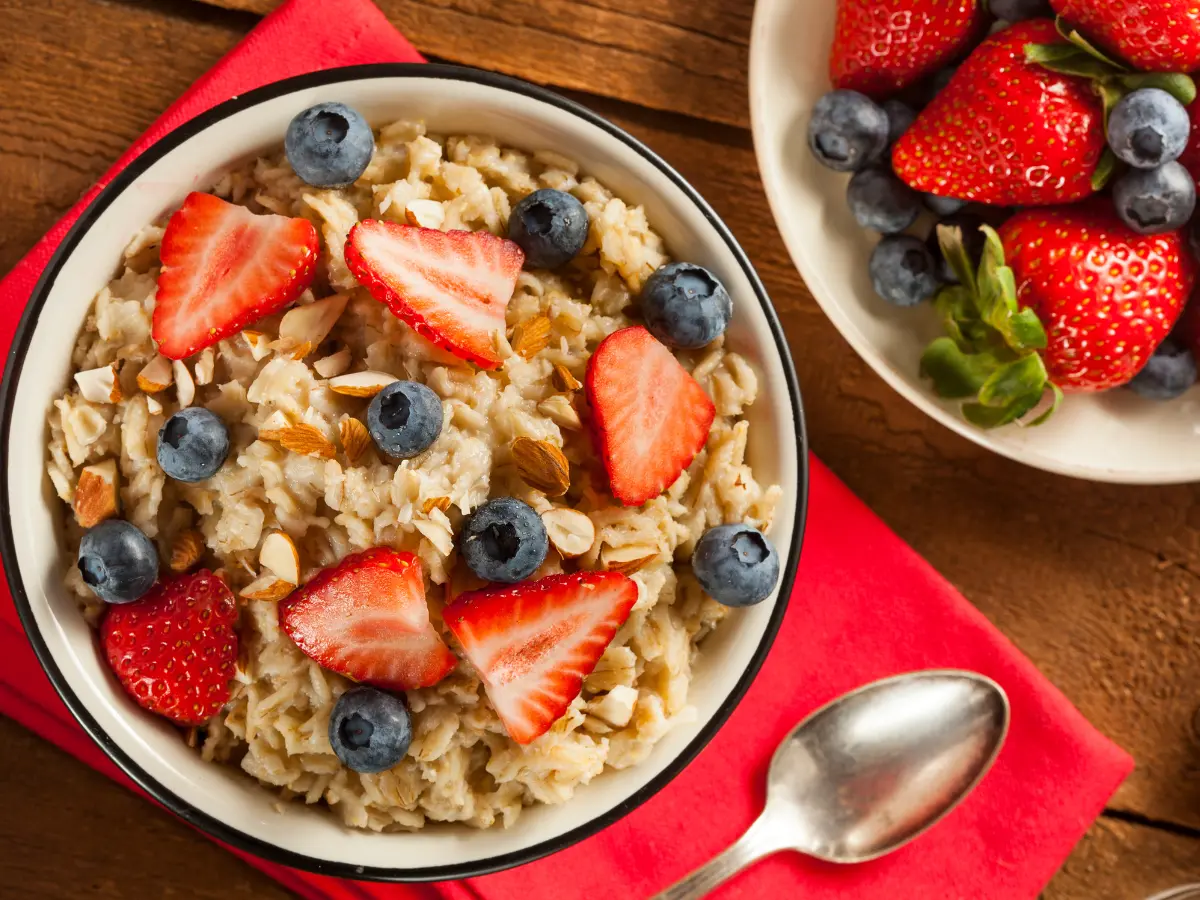
Recently, there has been more evidence that fiber, from supplementation and foods, can improve symptoms of IBS. Here’s where it gets tricky, though. Some types of fiber, like short-chain soluble and highly fermentable dietary fiber, can actually increase IBS symptoms.
In contrast, soluble fiber results in low gas production and a potential decrease in symptoms.
Some food sources of soluble fiber include:
Soluble fiber supplementation in the form of psyllium (like Metamucil) may improve overall symptoms of IBS for all subtypes. Dietary fiber can also lower cholesterol levels, reduce appetite and improve blood glucose control.
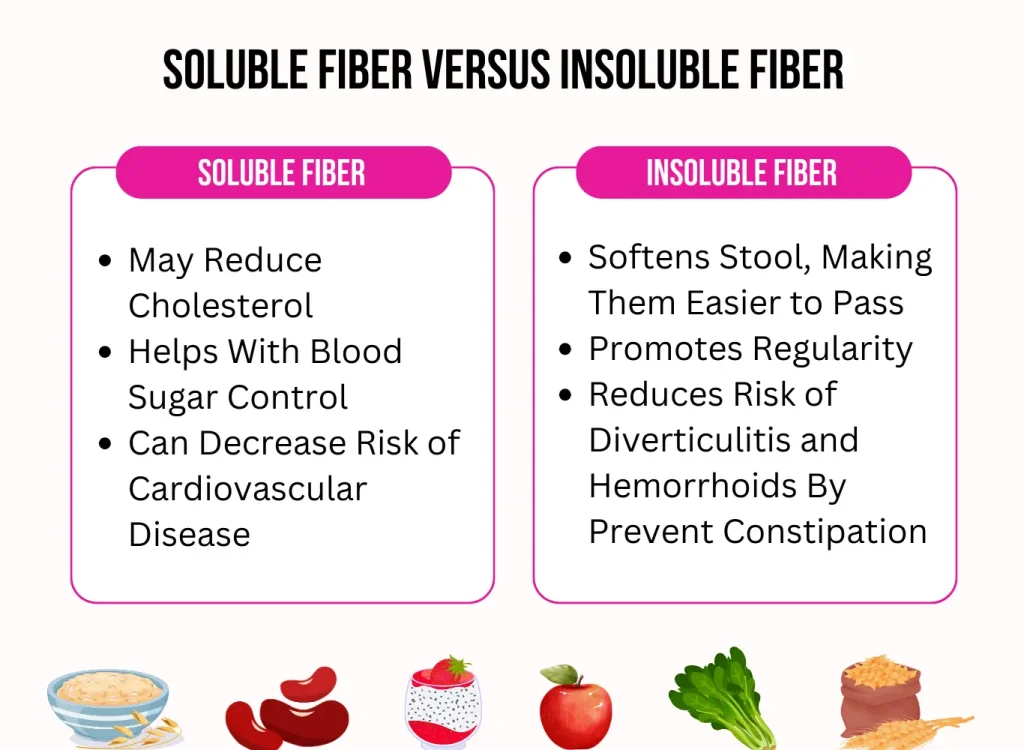
It’s important to remember to start low and go slow when introducing fiber to the diet – and drink plenty of water! Eat one high fiber meal a day for a week and see how you feel – then gradually add more foods or increase supplementation.
Resources to Add More Fiber to Your Diet:
— 48 Ways to Use Hemp, Chia, and Flaxseeds
— High Fiber Breakfast Ideas
— 5-Day Low Carb, High Fiber Meal Plan
Gluten-Free Diet
A gluten-free diet has been mentioned for treatment of IBS, however, there is insufficient evidence to recommend it. Most of the research conducted is low-quality, and with little improvement in symptoms.
Further studies are needed.
Conclusion
If you find the low FODMAP diet too restrictive, even for a 6-week timeframe, it might be worth it to try a Mediterranean diet or incorporating soluble fiber from foods and supplementation.
As always, further research is needed in regards to the long-term effects of these diets. Working one-on-one with a dietitian who is familiar with IBS can make the journey so much easier – especially if you just don’t even know where to start.
Let me know what has worked for you if you have a history of IBS!
